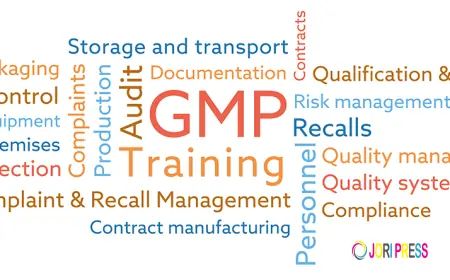The Role of a Child Life Specialist in Pediatric Hospitals: A Guide for Parents
This guide breaks down what child life specialists do, how they support children, and why they are crucial to delivering family-centered pediatric care.

When a child is admitted to a hospital, it isn’t just a medical event—it’s an emotional experience that can be confusing, overwhelming, and even traumatic. That’s where a child life specialist becomes an essential part of the pediatric care team. Their role goes beyond clinical treatment, focusing on emotional, developmental, and psychological support to make hospital experiences less scary for young patients and their families.
What Does a Child Life Specialist Do?
A child life specialist is a healthcare professional trained in child development, psychology, and counseling. They work primarily in pediatric hospitals to help children and families navigate the emotional challenges of medical treatment.
Their main responsibilities include:
-
Preparing children for surgeries, procedures, or hospital stays in age-appropriate ways
-
Using play, art, and storytelling to help children process their emotions
-
Offering comfort and distraction during painful or stressful events
-
Teaching coping techniques for managing fear, anxiety, and uncertainty
-
Supporting parents, siblings, and caregivers through education and emotional guidance
Why Children Need Emotional Support in Hospitals
Hospital environments are filled with unfamiliar sights, sounds, and procedures. For a child, even a routine blood draw can be a source of fear. Unaddressed emotional distress may lead to long-term anxiety, fear of medical settings, or behavioral challenges.
Here’s why emotional care is vital in pediatric healthcare:
-
It helps children feel more in control of their situation
-
It reduces fear and anxiety, improving cooperation during treatment
-
It builds trust between patients, families, and healthcare providers
-
It supports healthy emotional development even during illness
How a Child Life Specialist Helps During Medical Procedures
Medical procedures can be scary, especially for children who don’t understand what’s happening. A child life specialist uses preparation and play to make these experiences easier.
Some of the ways they help include:
-
Explaining procedures using simple, non-threatening language
-
Demonstrating tools and steps using dolls, models, or role play
-
Encouraging children to ask questions and express concerns
-
Distracting the child during the procedure using toys, games, or guided breathing
-
Offering positive reinforcement and praise afterward
Benefits of Having a Child Life Specialist on the Care Team
Adding a child life specialist to the pediatric healthcare team brings multiple benefits for both the child and their family.
For the Child:
-
Reduced fear and stress related to hospital stays
-
Increased understanding of their condition or treatment
-
Improved ability to express emotions and cope with challenges
-
Support for continued play and development while hospitalized
For the Family:
-
Guidance on how to talk to their child about medical conditions
-
Emotional support during high-stress situations
-
Help preparing siblings for changes in routine or separation
-
Advocacy to ensure the child’s emotional needs are met during care
Key Skills and Qualifications
To become a child life specialist, individuals typically hold a degree in child development, psychology, or a related field. They also complete specialized clinical training and obtain certification through the Association of Child Life Professionals (ACLP).
Important skills include:
-
Knowledge of child development and pediatric healthcare
-
Ability to communicate effectively with children and families
-
Creativity in using play and expressive techniques
-
Empathy, patience, and emotional intelligence
-
Strong teamwork and collaboration with the medical staff
Areas Where Child Life Specialists Make a Difference
These professionals can be found in various settings, and their work spans many types of pediatric care.
Hospitalization:
-
Easing the transition into the hospital
-
Helping children adapt to new environments and routines
-
Supporting emotional health during extended stays
Surgery:
-
Preparing children for anesthesia and the operating room
-
Helping manage post-surgery fears or confusion
Chronic Illness:
-
Educating children about their diagnosis and treatment
-
Offering long-term coping tools for ongoing care
Trauma and Emergency:
-
Providing immediate emotional support during crises
-
Helping children feel safe during chaotic or painful situations
End-of-Life and Grief Support:
-
Assisting families in creating meaningful experiences during palliative care
-
Helping children and siblings understand and cope with loss
How Play Is Used Therapeutically
Play is the language of children, and it’s also a powerful therapeutic tool. A child life specialist incorporates different types of play to help children understand, express, and process their medical experiences.
Medical Play:
-
Children use toy stethoscopes, bandages, and syringes to “treat” dolls
-
This hands-on exploration builds familiarity and reduces fear
Expressive Play:
-
Art, music, and storytelling activities allow children to express emotions
-
Helps children communicate feelings they may not have words for
Developmental Play:
-
Activities tailored to age and developmental level
-
Ensures continued growth despite time spent in the hospital
Recreational Play:
-
Board games, video games, or physical activities that provide distraction and joy
-
Promotes a sense of normalcy and fun
Supporting Families and Caregivers
Parents often feel helpless watching their child go through medical treatments. A child life specialist is also there to guide and empower caregivers.
They assist parents by:
-
Teaching them how to explain diagnoses or procedures to their child
-
Encouraging their involvement in care and play
-
Offering emotional support during high-stress times
-
Providing coping strategies for the entire family
When Should You Ask for a Child Life Specialist?
You can request a child life specialist at any point during your child’s healthcare journey. Some common situations where their support is especially beneficial include:
-
First-time hospital visits or ER admissions
-
Upcoming surgeries or major procedures
-
Diagnoses that require long-term treatment
-
Frequent medical testing or injections
-
Emotional distress, anxiety, or changes in behavior
-
Preparing siblings for changes at home due to illness
How to Advocate for Child Life Services
While many children’s hospitals have child life specialists on staff, not all healthcare settings do. As a parent, you can still advocate for emotional and developmental support.
Here’s how:
-
Ask your doctor if a child life specialist is available
-
Request preparation support before any major procedure
-
Inquire about playrooms, art therapy, or coping tools in the facility
-
Look for certified professionals in your area if services aren’t available on-site
-
Encourage your child to engage with the specialist to build trust and communication
Common Myths About Child Life Specialists
Despite their growing importance, there are still some misunderstandings about the role of a child life specialist.
Myth: They’re just babysitters.
Reality: Child life specialists are trained professionals with degrees and certifications focused on child psychology, development, and medical support.
Myth: They only help during major surgeries.
Reality: They assist with all types of procedures and emotional needs, from minor blood draws to end-of-life care.
Myth: Only young children benefit from their support.
Reality: Teenagers, young adults, and siblings also receive support, especially during complex or emotionally charged situations.
Myth: Their role isn’t necessary if the parents are involved.
Reality: While parents provide essential support, a child life specialist offers specialized tools and techniques that complement family care.
FAQs About Child Life Specialists
What age range do child life specialists work with?
They typically support infants through adolescents, but some may work with young adults in transitional care settings.
Are child life services free?
Many hospitals provide these services at no cost. For private practices, costs vary by provider.
Can I request a child life specialist even for outpatient procedures?
Yes. In many facilities, child life services extend to outpatient surgeries, diagnostic tests, or clinic visits.
Do they work with children with disabilities or special needs?
Absolutely. Child life specialists are trained to adapt their approaches based on each child’s developmental level and unique needs.
Final Thoughts
The hospital environment can be a frightening place for children, but a child life specialist transforms it into a space of comfort, learning, and emotional safety. They ensure that young patients don’t just survive medical treatment—they thrive emotionally through it.
If your child is facing a healthcare journey, don’t hesitate to request support from a child life specialist. Their presence can turn fear into understanding, tears into resilience, and hospital rooms into places of hope.
What's Your Reaction?
 Like
0
Like
0
 Dislike
0
Dislike
0
 Love
0
Love
0
 Funny
0
Funny
0
 Angry
0
Angry
0
 Sad
0
Sad
0
 Wow
0
Wow
0















































